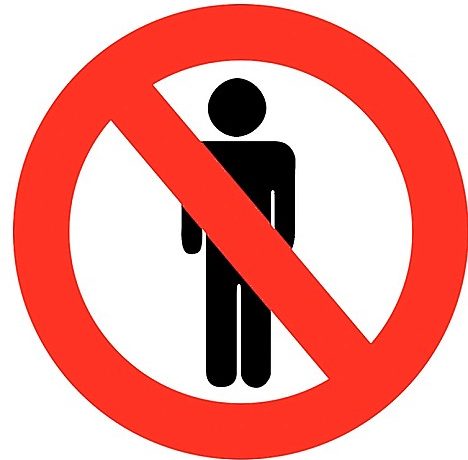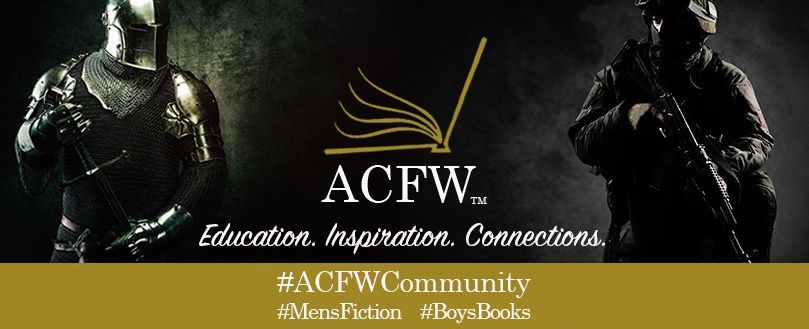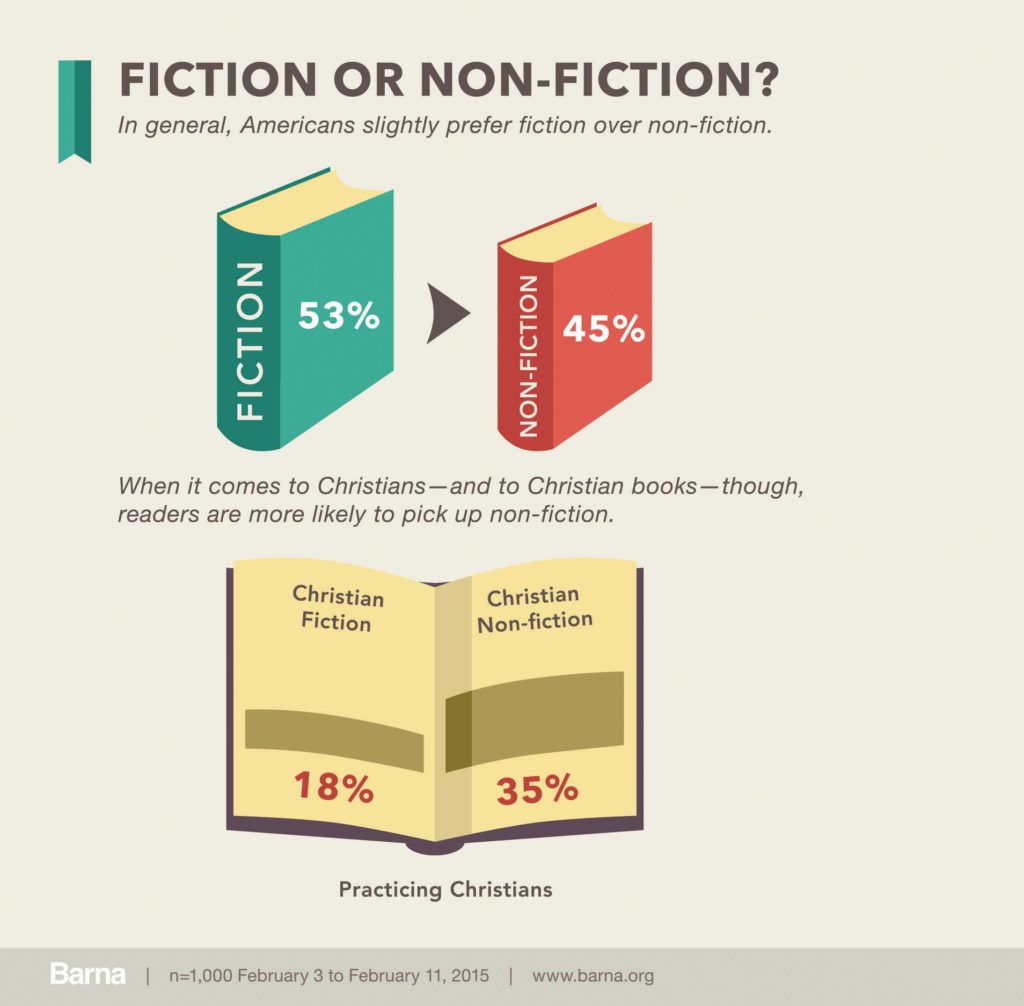
It should come as no surprise that the ACFW (American Christian Fiction Writers), the world’s largest Christian Fiction organization, is primarily comprised of females. I say that ‘shouldn’t come as a surprise’ for several reasons, but mostly it has to do with the demographics of reading/publishing and the demographics of the evangelical church.
Exact numbers are difficult to come by, but the disparity between females to males in publishing, as well as evangelical publishing, is indisputable (For example, 78% of publishers are comprised of females. According to this editor, “…most editorial meetings tend to be dominated by women. Saying the ratio is 75/25 is not overstating things. So needless to say when a male editor pitches a book aimed at men, there are perilously few men to read it and give their opinions.”) According to the Spring 2012 ACFW Journal (since discontinued), only 13% of its members were, at that time, men. (You can find a PDF of that edition HERE.) Being a former member, and having attended several ACFW conferences, I can attest to the general accuracy of that figure.
The Christy Awards (the premiere Christian fiction award) is a good example of this demographic disparity. The 2019 awards consisted of 30 Finalists. Of those, 5 were male. (That disparity basically holds up throughout the life of the Christys.) If that figure is indicative of the representation of men writing and/or reading Christian fiction, it means that 1/6th or roughly 16 percent of the Christian fiction market is comprised of men. In an older article entitled In Search of the Male Reader, the author quotes Dave Long, then senior acquisitions editor for Bethany House Publishers, commenting on the problem this gender imbalance creates for male readers. “For guys who might want to read a suspense novel or legal thriller, it’s tough convincing them there are those kinds of books available. The shelves look like they are filled with Amish and historical romances and I think men have either stopped looking or are content with offerings from the general market.” Statistics quoted by Christian Retailing bear that out:
The top Christian fiction genres reported by surveyed readers were historical fiction (66 percent), romance (52 percent), contemporary (51 percent), romantic suspense (50 percent), suspense/thriller/legal thriller (47 percent) and mystery/espionage (45 percent)
With the majority of Christian fiction books comprised of historical, romance, and romantic suspense, it’s not a surprise that Christian men have taken to shopping for their fiction elsewhere.
While a member of the ACFW, I often noted this disparity. In a religious movement that esteemed male leadership, the proliferation of female content seemed incongruous. However, the demographic tilt appeared so organic I eventually concluded it was futile to expect any significant change to the culture. So while I maintain great interest in the trajectory of Christian publishing (and Christian artists in general), I’ve since moved my publishing endeavors to the general market.
Recently, I learned about the ACFW’s attempt to engage more men. A Facebook page dedicated to connecting with male readers was introduced. According to the group’s Statement of Purpose: “The ACFW Men’s Fiction group is for current ACFW members both male and female who write stories designed to reach men and boys for the Kingdom of God.”

While I applaud efforts like this, I’m mostly skeptical. This isn’t because I question the motives or sincerity of those involved, but because I’ve concluded the problem is much bigger and more complex than we tend to concede.
So what are some of factors that have resulted in Christian fiction being predominantly aimed at women? And what has prevented the industry from connecting with more male readers? In this article I want to outline five reasons why I believe Christian fiction publishers have lost/are losing male readers. Below are the first two.
The ‘Gender Gap”
In feminist circles, much is made of apparent discrepancies between men and women in various walks of life. Most of this critique is intended to portray a type of “male privilege” that pervades our society and tips the balance of power to men.
So, for example, during Women’s History month 2017, one used bookstore owner decided to protest the perceived “gender gap” between male and female fiction authors by turning in the spine on all books written by men. A sign posted at the store read, “We’ve silenced male authors, leaving works of women in view.” Such protestations are now fairly common across all industries as narratives of gender and racial diversity are emphasized.
One glaring inconsistency to the claims of a gender gap in publishing is the very real data concerning a biological gender gap between readers. For example, this NPR article notes that “When it comes to fiction, the gender gap is at its widest. Men account for only 20 percent of the fiction market.” In an article entitled What Is It with Boys and Reading? Psychology Today peruses to standard data:
On the U.S. National Assessment of Educational Progress (NAEP), boys have scored significantly lower than girls in reading at all grade levels every year since 1992 (the first year for which NAEP scores are available). And the gap grows larger, not smaller, as children get older, such that, by twelfth grade, more than twice as many girls as boys (5% versus 2%) scored as “advanced” in reading on the 2015 NAEP. Not surprisingly, given these data, boys are also for more likely than girls to be identified as learning disabled in reading.
…these disparities continue into adulthood as well; in 2016, the Pew Research Center survey of adult reading habits concluded that “women are more likely to read books than men,” and noted that 32% of men (versus only 23% of women) surveyed said that they hadn’t read a single book in the past year.
The data are pretty consistent across time, countries and age groups: there is little doubt that, on average, boys read less, and less well, than girls. (emphasis mine)
Compounding this problematic disparity is the belief among some that “Our society is neutering boys of their maleness at a young age.” That according to “dissident feminist” Camille Paglia in her interview with the Wall Street Journal.
…attempts to deny the biological distinctions between men and women is to blame for much that is wrong with modern society. ‘What you’re seeing is how a civilization commits suicide’ [Paglia] told the Wall Street Journal.
Such “biological distinctions between men and women” are clearly in play when it comes to reading and readers. While this is obviously a larger sociological and biological issue, it remains a very real factor in why Christian fiction publishers are losing male readers — Men simply don’t read as much as women.
Evangelicals don’t read much fiction
According to this study by Barna, evangelicals read differently than the general populace. Whereas, in general, mainstream readers prefer fiction over non-fiction, Christians favor non-fiction over fiction (see graph below). This is somewhat understandable in that Christianity is defined by theology and regularly confronts cultural, philosophical, historical, and political issues. Which could explain why there is significant skeptism among evangelicals regarding fiction and entertainment in general. After all, the Bible is a book of Truth. Why then should Christians bother with make-believe?

Suspicion of fiction may start at the top. Having been on staff with two different churches over an 11 year stretch, I can attest to the fact that many evangelical ministers do not read fiction. Rather, the typical pastor’s library is top-heavy with books on Theology, Administration, Counselling, and Church History. At best, fiction is seen as simple entertainment or diversion. At worst, it is a vehicle to pollute the imagination and shape values of the gullible. Either way, few Christian churches invest much energy into making a case for the arts and storytelling, much less developing a theological apologetic for its value.
In this way, the scarcity of Christian men reading fiction is partly representative of the evangelical church’s suspicion of the medium. (Of course, the gender gap comes into play here as the male mind is more left-brained, analytical, and less emotive. Which is why men who do read tend to gravitate to more non-fiction — practical, professional, theoretical, investigative, biographical, or clinical stuff. Similarly, when men read fiction, it tends to lean to the visceral, speculative, and adventurous — war, espionage, crime, survival, courage, camaraderie, and coming-of-age. )
So one reason Christian publishers are losing male readers is because evangelical churches have not made a compelling case for reading fiction. Even if a Christian man is predisposed to be a reader, it is statistically more likely that he would pick up a book on exercise, self-defense, or true-life survival than epic fantasy or steampunk.
Continued in Pt. 2















These are all excellent points, Mike! I do hope you will write a follow-up on why Christian men should be reading more books, and especially why and how reading fiction is so important, even for men. I have some thoughts on this subject, but I’ll hang onto them until I see your next post.
It’s also telling, Mike, that the ACFW graphic for roping in more male readers has a knight and a modern-day soldiers. So any guys who are yearning for more good science-fiction and fantasy would take that as a hint that they’re out of luck – maybe not with the knight, per se, but a knight could signify historical fiction. That’s where my mind goes to.
Also, in my generation (X), reading fiction was something you got teased for in middle school and high school by other boys. So-called “jocks” in our district had all the power and any boy caught reading a book was labeled a nerd/geek/whatever. So, it’s not like some guys have made fiction reading any easier for members of their gender.
I was just in a Christian bookstore last week (I live a long way from Christian bookstores, so going to one is rare for me), and when I was there, I couldn’t find anything (in the fiction section) for me on the shelves to even pick up. I could really resonate with this quote: “For guys who might want to read a suspense novel or legal thriller, it’s tough convincing them there are those kinds of books available. The shelves look like they are filled with Amish and historical romances and I think men have either stopped looking or are content with offerings from the general market.”
Some of the general market MG and YA titles that do appeal to boys have been condemned by Christian adults e.g. Harry Potter and The Hunger Games. How do you think this has affected the reading habits of Christian males?